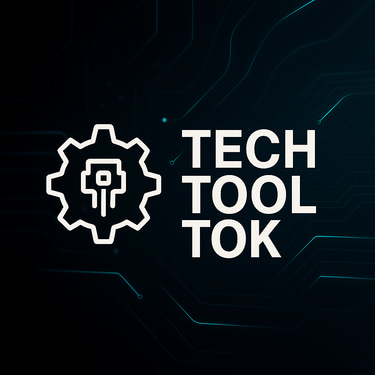Monetize AI Creativity: A Comprehensive Guide to Creating and Selling AI-Generated Digital Products
8/17/20255 min read



Unlocking AI Creativity: Tools and Resources
The emergence of artificial intelligence has significantly transformed the landscape of creative content generation, offering a range of tools and resources that empower users to produce high-quality digital products. These platforms and software programs harness the power of AI to facilitate the creation of art, music, writing, and design assets. To navigate this dynamic field, it is essential for creators to identify the right tools tailored to their specific creative needs.
For visual arts, platforms like DALL-E and Midjourney have gained attention for their ability to generate stunning images from textual descriptions. These tools allow artists to experiment with style and composition, providing endless possibilities for unique artwork. To get started, users can input simple descriptions, and the AI will interpret these prompts into intricate visuals, making it an excellent choice for both novice and experienced artists seeking inspiration.
In the realm of music, tools such as Amper Music and AIVA cater to users looking to compose original soundtracks effortlessly. These AI music generators analyze user preferences and styles, enabling individuals to create tailored compositions in minutes. For beginners, exploring preset styles and modifying them can help one grasp the capabilities of AI-driven music production, paving the way for more complex projects as skills develop.
Writing tools like OpenAI’s ChatGPT and Jasper.ai assist content creators in generating compelling text. These platforms provide features that not only enhance productivity but also foster creativity. Users can initiate a draft, pose questions, or request specific styles, allowing the AI to assist in crafting engaging narratives or blogs. To maximize these resources, it is advisable to provide clear prompts, ensuring that the generated content aligns closely with the creator's vision.
As creators explore these AI resources, discovering examples of successful works can serve as motivation. Many artists and musicians have already harnessed AI tools to create extraordinary digital products that captivate audiences. By leveraging the right tools, anyone can unlock the potential of AI creativity, transforming ideas into remarkable digital works.
Setting Up Your Professional Online Store
Creating a professional online store is an essential step when aiming to sell AI-generated digital products. The success of your venture largely depends on the e-commerce platform you choose. Popular platforms such as Shopify, WooCommerce, and BigCommerce offer user-friendly interfaces and robust features tailored for digital goods. It is advisable to assess the features of each platform, such as payment gateways and customization options, and select one that aligns with your business goals.
Once you have chosen a platform, the next step is to design an engaging storefront. Your store's aesthetic should reflect the unique nature of AI-generated products. Utilize clean layouts, captivating color schemes, and high-quality images to make an impactful first impression. An intuitive navigation structure is vital to ensure customers can easily find what they are looking for. Ensure that your store is responsive, as many shoppers use mobile devices to make purchases, and a seamless mobile experience can significantly enhance user satisfaction.
Creating effective product listings is another key component. Each listing must include detailed descriptions of your AI-generated digital products, emphasizing their benefits and features. Incorporating relevant keywords, such as “digital assets” and “AI-generated content,” will not only optimize your content for search engines but also make it more appealing to potential buyers. Additionally, high-resolution images or demo videos can showcase your products more effectively. When it comes to pricing strategies, consider the perceived value of your products, competitor pricing, and your target market. Offering introductory pricing or bundle deals can encourage initial sales and foster customer loyalty.
Finally, ensuring secure transactions is critical for building trust with your customers. Implement SSL certificates, and consider using reputable payment processors like PayPal or Stripe to offer a seamless checkout process. By following these essential steps, you can set up a professional online store that effectively showcases your AI-generated digital products and creates a positive shopping experience for your customers.
Effective Marketing Strategies for AI-Generated Products
In today's competitive landscape, effectively marketing AI-generated digital products is crucial for achieving business success. Establishing a strong brand presence on social media platforms is one of the most effective strategies. Social media allows creators to engage directly with their audience, generate buzz around their products, and showcase the innovative aspects of their AI creations. Utilizing platforms like Instagram, Facebook, and LinkedIn can effectively amplify a brand’s message and foster a community of enthusiastic followers.
Another essential component is content marketing. Producing informative and valuable content helps potential customers understand the benefits and capabilities of AI-generated products. Educational blogs, tutorials, and videos provide insight into the technology and its applications, enhancing customer trust. Furthermore, regular updates and engaging content can keep the audience informed and encourage repeat visits to your brand’s website.
Search Engine Optimization (SEO) techniques are a critical tool in increasing the visibility of AI-generated products. By incorporating relevant keywords, optimizing meta tags, and utilizing quality backlinks, creators can improve their rankings in search engine results. This approach enhances organic traffic to their websites, allowing potential customers to discover their unique offerings more easily.
Email marketing is another powerful strategy that allows businesses to establish direct communication with potential buyers. Personalized email campaigns can nurture relationships, promote new offerings, and announce special promotions. Collaborating with relevant partners and influencers can expand outreach and lend credibility to AI-generated products. Through partnerships, creators can tap into established audiences, driving sales and brand recognition effectively. Implementing these combined strategies can significantly enhance the marketing efforts for AI-powered digital products, ensuring they reach their desired audience efficiently.
Scaling Your Business: Insights and Future Trends
To effectively scale an AI-driven online business, it is essential to adopt a multifaceted approach. Diversifying your product offerings can substantially enhance revenue streams and mitigate risk. Consider creating a range of AI-generated digital products that cater to different market segments. For instance, if your primary product is AI-generated art, you could expand into related niches such as music composition, video content, or even personalized branding materials. This diversification not only broadens your customer base but also positions your business as a leader in innovating AI creativity.
Another crucial strategy for scaling is optimizing operations for efficiency. This involves streamlining workflows, improving supply chain management, and leveraging automation wherever possible. Utilizing project management tools can help coordinate efforts across teams, while customer relationship management software can provide insights into client interactions, ultimately enhancing customer satisfaction and retention. Efficiency in operations frees up resources, allowing you to focus on scaling your business more effectively.
Analytics plays a vital role in guiding scalable practices. Employing data analytics tools to monitor key performance indicators (KPIs) allows businesses to derive actionable insights regarding customer preferences and emerging market trends. Staying attuned to these metrics not only aids in forecasting demand but also informs product adjustments and enhancements, ensuring offerings align with consumer needs.
Looking ahead, several emerging technologies promise to impact the AI creativity landscape significantly. Developments in machine learning algorithms and natural language processing are expected to enhance product capabilities and open new avenues for creativity. Additionally, the rise of blockchain technology presents opportunities for creators to protect copyright and generate new monetization models through digital ownership. Businesses that remain agile and responsive to these trends will likely thrive in an ever-evolving digital marketplace.

